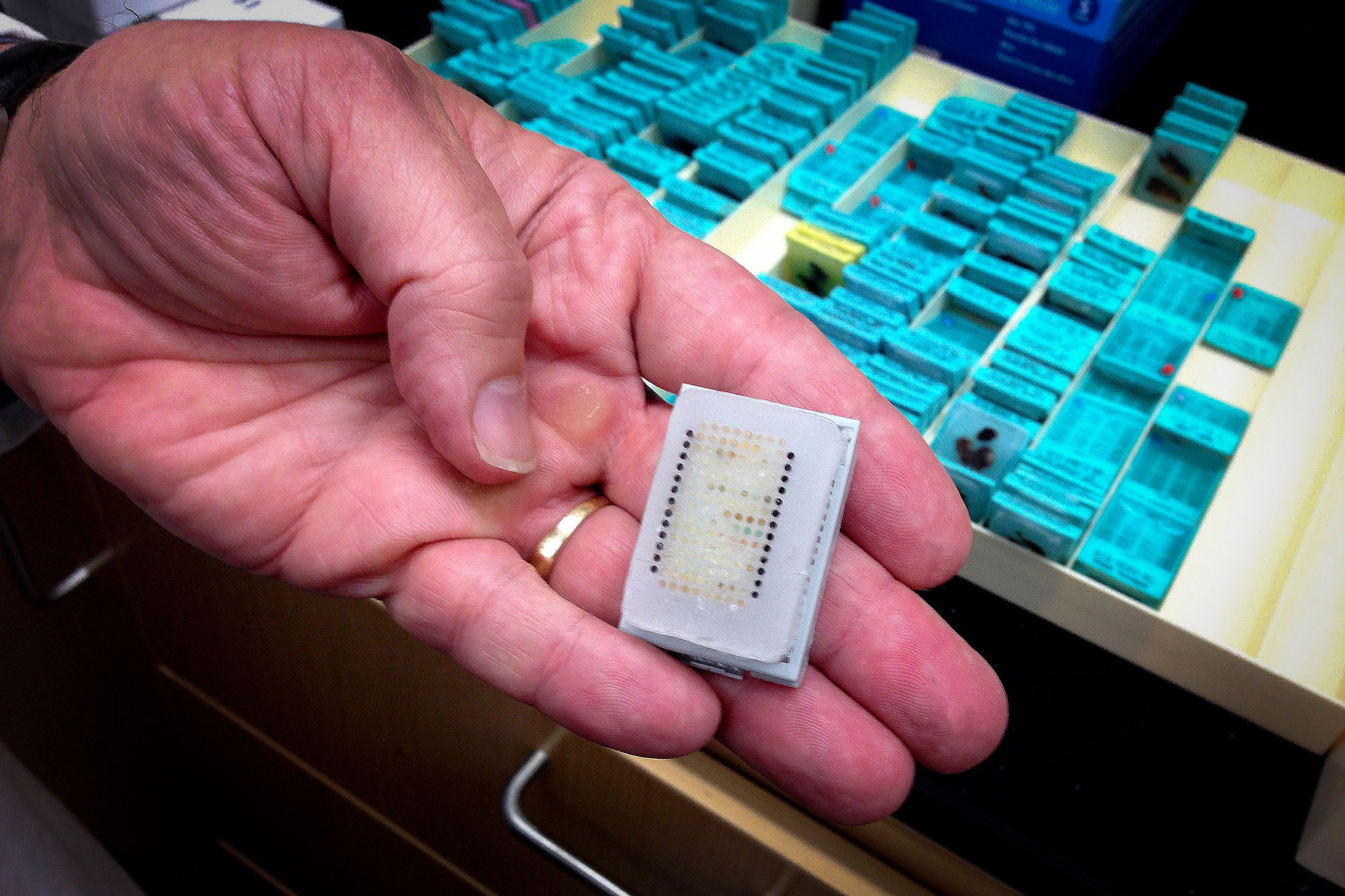After diagnosis of diseases such as cancer, the rest of the tissue samples are destroyed when they could be used for research. The University of Virginia Health System has been awarded more than $3 million from the National Institutes of Health’s National Cancer Institute to support and expand a critically important program that makes tissue samples available for research on diseases ranging from breast cancer to lung disease.
The five-year grant enables U.Va. to launch a partnership with Eastern Virginia Medical School and the Medical University of South Carolina to collect samples there as well.
“One of the bottlenecks in translational research is getting diseased human bio-samples to study,” said grant recipient Dr. Christopher Moskaluk, who chairs the U.Va. Department of Pathology and is a leader of the NCI-designated U.Va. Cancer Center. “There is a critical need for specimens, and we realized if we could get partners, we could increase the number of samples we could provide.”
The Eastern Virginia and South Carolina schools will be asked to collect samples that are in particularly great demand, such as from breast and brain cancers. “These are samples we really find hard to fulfill the need for,” Moskaluk said.
Rescuing Useful Tissue
The samples are collected, with patient permission, from extra tissues leftover from diagnosis. This rescues useful tissue that would otherwise be discarded.
“After diagnosis, the rest of the tissue is destroyed. It’s incinerated,” Moskaluk said. “It’s a horrible waste.”
The Cooperative Human Tissue Network, a network of academic medical centers organized by the National Cancer Institute, aims to put that tissue to good use by sharing it with biomedical researchers. The new grant funding continues U.Va.’s longstanding relationship with the network, which also includes Ohio State University, the University of Alabama at Birmingham, the University of Pennsylvania, Nationwide Children’s Hospital and Vanderbilt University. Over its 27-year history, the network has distributed close to 1 million specimens, resulting in more than 2,500 scientific publications.
Expanding Offering of Samples
U.Va. was chosen to join the network in 2001 partly based on its expertise in creating tissue microarrays, Moskaluk said. Unlike typical microscope slides that contain only one tissue sample, a microarray can contain hundreds of samples, making for easy, efficient comparison. “It really speeds up the scientific process,” Moskaluk said.
Only select institutions have the resources and expertise to create microarrays, which are in great demand by researchers. The new grant, Moskaluk said, will allow U.Va. to increase production to help meet that demand. In addition, it will allow the U.Va. researchers to expand production to include prostate cancer and other tissue types not currently available.
Media Contact
Article Information
June 18, 2014
/content/speeding-research-3-million-nci-grant

